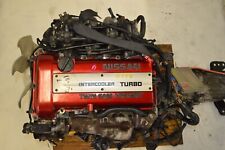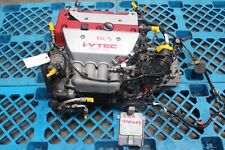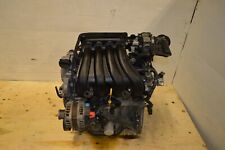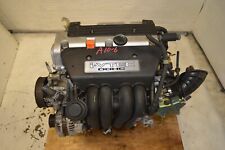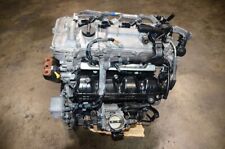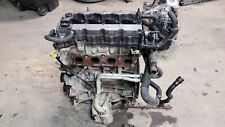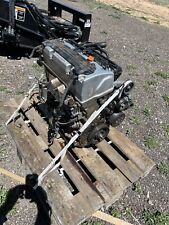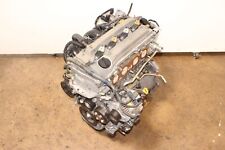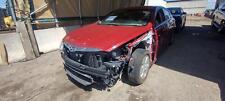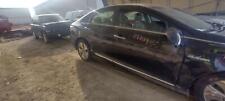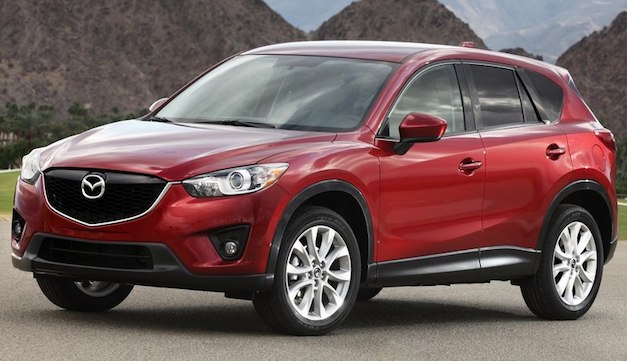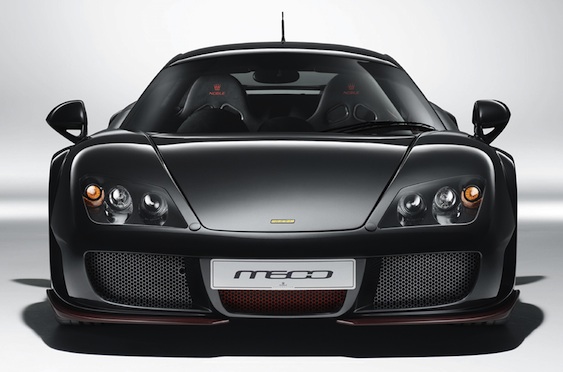Nissan LEAF can go 100 miles on single charge, how far you go depends on a couple of things

The 2011 Nissan LEAF has a top speed of 87 mph and a driving range of 100 miles on a single charger – however, the latter depends on a bunch variables that many electric-vehicle shoppers (whether they buy the LEAF or something else) will face.
Click here for more news on the Nissan LEAF.
According to Nissan, when the LEAF’s battery is new and fresh out of the dealership, the range of the vehicle will wary anywhere from 62 to 138 miles. Nissan says that range is most affected by:
- Climate control ““ the more extreme the temperature is outside, the more energy used to heat or cool the cabin.
- Speed ““ higher speeds require much more energy to overcome air resistance.
- Driving style ““ smooth acceleration and deceleration will extend range while aggressive acceleration and deceleration will decrease range.
- Cargo and topography ““ heavy cargo and driving up steep long inclines will reduce range.
Click through to read more.
2011 Nissan LEAF:
Nissan also says that there an infinite number of range scenarios that take into account many variables. The automaker pointed out just a few:
- EPA LA4 test cycle: 100 miles – The Nissan LEAF has been tested under the EPA Urban Dynamometer Driving Schedule, a laboratory test commonly called the LA4 test cycle, which represents city driving conditions. Top speed is 56.7 mph and average speed is 19.59 mph. Ambient temperature can vary from 68 – 86 degrees. Climate control is off. The Nissan LEAF easily achieved 100 miles.
- Ideal driving conditions: 138 miles
- Speed: Constant 38 mph
- Temperature: 68 degrees
- Climate control: Off
- Driving on a flat road at a constant 38 mph means less air resistance, and therefore less energy use. And at 68 degrees, there’s no need for climate control, extending the range even further. The result: a range boost up to 138 miles.
- Suburban driving on a nice day: 105 miles
- Speed: Average 24 mph
- Temperature: 72 degrees
- Climate control: Off
- The average speed in this scenario is 24 mph; common when commuting and running errands. The ambient temperature is 72 degrees and the climate control is off. Not using the air conditioner and driving at slower speeds mean less energy use and a little extra range.
- Highway driving in the summer: 70 miles
- Speed: Average 55 mph
- Temperature: 95 degrees
- Climate control: On
- Averaging 55 mph on the highway, in 95 degree weather, with the air conditioning on high may produce range figures like this. Higher speeds require more energy to overcome air resistance. Running the air conditioner means energy that could be used to increase range instead goes to cooling the car.
- Cross-town commute on a hot day: 68 miles
- Speed: Average 49 mph
- Temperature: 110 degrees
- Climate control: On
- Driving from a rural area into the city at an average 49 mph with the a/c on high may produce this range. Under these conditions, climate control combined with higher-speed driving produces increased energy consumption, hence the effect on range.
- Winter, urban stop-and-go, traffic jam: 62 miles
- Speed: Average 15 mph
- Temperature: 14 degrees
- Climate control: On
- Though the average speed is only 15 mph with stop-and-go traffic, the 14-degree temperature means the heater is doing a lot of work so you spend considerable time and energy heating your car rather than moving forward. Despite these conditions, it would still take more than 4 hours to run out of charge!
“With proper care and maintenance, your battery will last for many years,” Nissan says on the LEAF website. “However, over time it will undergo some reduction in capacity. This will affect range. Consider though that 70% of people drive less than 40 miles per day. So even as your battery ages and range is affected, most people will not be impacted.”
Well, we guess this tells us that driving an electric-vehicle entails more than just your regular knowledge about cars.
Refresher: Power for the Nissan LEAF comes from a 107-hp electric-motor that runs on power supplied by lithium-ion cells. On a full-charge, the Nissan LEAF allows for a driving range of 100 miles with a top speed of 87 mph. A full charge takes up to 8 hours on a standard 200V outlet. Buyers can opt for the DC 50kW quick-charger, which recharges the battery up to 80 percent in under 30 minutes. Prices for the 2011 Nissan LEAF will start at $32,780 but with a federal tax-credit prices will come in as low as $25,280, or for a lease payment of $349 a month.
2011 Nissan LEAF:
– By: Omar Rana
Source: Nissan






